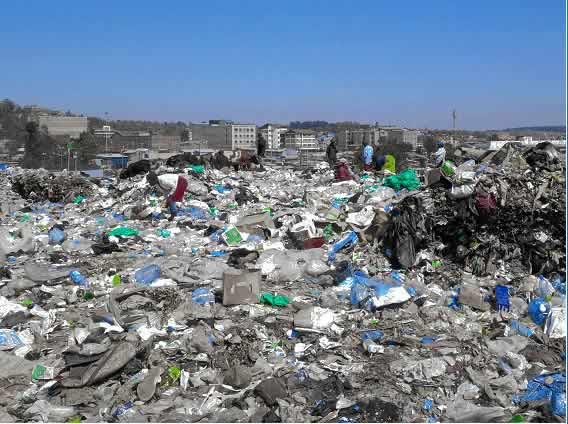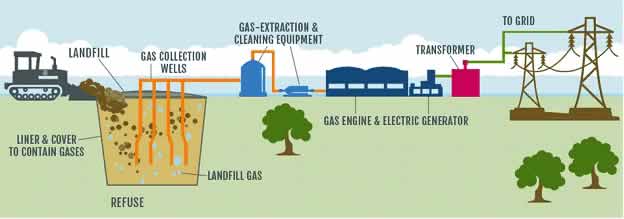The United Nations Human Settlements Programme (UN-Habitat) has signed a cooperation agreement with the Politecnico di Milano in Italy to carry out a feasibility study for the closure of the Ngong Town illegal dumpsite in Kenya and to design and construct a modern integrated municipal waste-to-energy plant.

Solid waste arises from a wide range of human activities including domestic, commercial, industrial and agricultural. Managing solid waste is one of the most costly and complex urban services undertaken by municipal and county governments. The Ngong dumpsite receives a daily average of 50 tonnes of waste from Nairobi and from the local communities. There is no proper solid waste management in place with the waste dumped without processing or treatment which presents serious health and environmental hazards. The environment around the dumpsite is heavily polluted. The pollution includes surface and ground water, air, soil and crops pollution and visual blight.
Ngong residents in the proximity of the illegal dumpsite have complained of respiratory illnesses and skin infections. This has prompted the Kajiado County government to identify proper waste management and disposal as one of their development priorities. The Kenyan government approached the Italian Government to provide a long-lasting solution to the improper solid waste management and to create a pilot project that could be replicated in other towns in Kenya. The Italian Government is considering providing a soft loan to the Kenyan government for the design and construction of a modern municipal waste recycle and treatment plant, based on a sound feasibility study including social and environmental impact assessment. UN-Habitat will provide technical assistance and coordination for the environmental and social impact assessment.
The county government of Kajiado has allocated the land for the construction of a modern waste to energy plant away from the illegal dumpsite.

The cooperation agreement signed on Wednesday, November 22, 2017 between UN-Habitat and the Politecnico di Milano (POLIMI), which is the lead organisation in a consortium that includes the Technical University of Kenya (TUK) and LDK Consultants Engineers and Planners.
The feasibility study will:
- Conduct a baseline diagnostic survey on the current status of the solid waste management in Kajiado County;
- Design an integrated solid waste management system that includes the conversion of waste to energy;
- Study the financial and technical feasibility of safe closure of the existing dumpsite;
- Study the financial and technical feasibility of the design and construction of the new site;
- Study the potential for resource recovery facility; and
- Conduct consultative workshops and awareness raising.
The feasibility study will commence in December 2017 and end in March 2018. Waste to energy has been selected as the best option for the new landfill site because it is an increasingly practical and attractive environmental option for urban city officials and County Governments.
When completed, the new facility will recycle waste and generate energy for sale to the grid. Other benefits include; improved environmental sanitation due to the increased level of solid waste collection and the reduction of solid waste dumped; the provision of an affordable waste management system encompassing the collection, storage, transfer, treatment and disposal of waste; greater community awareness and participation in waste segregation and collection; the creation of new employment opportunities; and institutional capacity building.
